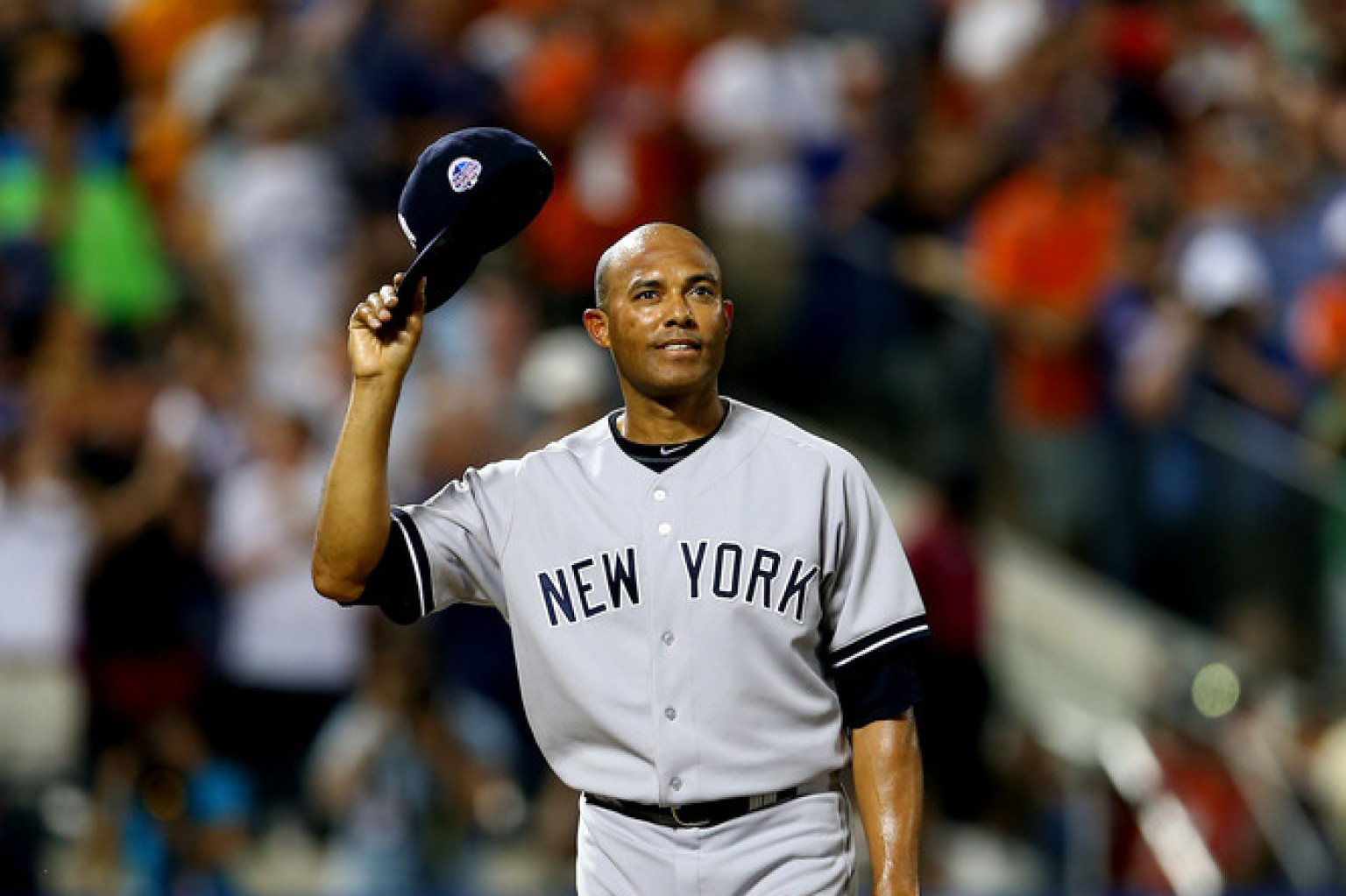Baseball recently saw the greatest closer to ever play put a cap on his storied career. Mariano Rivera sealed his legacy as baseball’s top relief pitcher with one and a third perfect innings over the Tampa Bay Rays during the New York Yankees’ last home game of the 2013 season. Long-time teammates Derek Jeter and Andy Pettitte made the walk out to the mound to pull Rivera from the game, who despite his best efforts, couldn’t help but show emotion. His heartwarming smile quickly turned to tears as he was embraced by teammates and overcome by the ovation from the crowd. After tipping his cap and acknowledging the fans who had cheered for him since his debut in 1995, he took his place on the bench and looked on as the Yankees finished their final home game of 2013.
Rivera’s story could have been a fairy tale. Born in 1969 in Panama City, Panama, he grew up in a poor fishing village. Following a brief stint in Panama as a starting pitcher Rivera signed with the New York Yankees in 1990. Over the next five years, Rivera dominated the minor leagues despite surgery to his pitching arm. However, once called up to the majors, Rivera struggled to settle into a role as a starting pitcher. He found his true calling in 1996 as a set-up man before ascending to the closer’s role the following season. Since then, he has redefined what it means to be a dominant closer.
As a major league closer, Mariano Rivera has an incomparable resume. When Rivera began his reign, Lee Smith was the career leader in saves, with 473; Rivera’s 652 saves have since made Smith’s numbers look almost pedestrian. He has thrown the final strike in four World Series, twice as many as any other pitcher. His 42 post-season saves and 11 World Series saves far surpass the next best marks of 18 and 6, respectively. His 2.21 career ERA (earned run average) is good for thirteenth of all-time, and his 1.00 WHIP (walks and hits per inning pitched) ranks third all-time. He’s pitched to a 0.70 post-season earned run average and set the bar for clutch post-season performances, having earned World Series MVP honours in 1999 and ALCS MVP honours in 2003.
Rivera undoubtedly changed the game of baseball. Never before had the sport seen a pitcher so absolutely dominant and unforgiving with just one pitch—his cutter tormented the American League’s best hitters for nearly two decades. However, what was more impressive than his signature pitch was his ability to instill fear in opposing lineups. Rivera’s entrance music, “Enter Sandman” by Metallica, was all it took to signal to everyone in the stadium that the game was over. Despite the ease with which Rivera mowed down his opposition, he never showed a hint of the ego, nor the braggadocio, associated with the fiery closers of this generation; Rivera would simply walk over to his catcher and thank the backstop. It was the same automatic routine 652 times. His great achievements and reserved personality on the mound have earned him respect from players, coaches, and sportswriters alike.
In addition to this, the Sandman’s presence in baseball changed the salary structure for relief pitchers. Rivera was awarded a $7.25 million salary following arbitration in 2000, the highest figure given to a player irrespective of position at the time. It is because of his landmark deal that relief pitchers now have the clout within an organization to be able to demand salaries that are comparable to those of starting pitchers.
Rivera is universally recognized as simply the best there has ever been. That recognition was evident as the Yankees played their final games in opposing teams’ stadiums for the 2013 season. Those visits saw Rivera receive gifts from opposing teams ranging from donations to his charity to prized game memorabilia. The most memorable was the Minnesota Twins’ rocking chair built from broken bats that his pitches had shattered in hitters’ hands. The splintered bats serve as a timeless reminder of the futility faced by opposing hitters, managers, and fans alike as Rivera was called upon to carry the Yankees to victory. After 19 years, five World Series, and one legendary career, Mariano Rivera has given more to baseball than could possibly be given to him in return.









